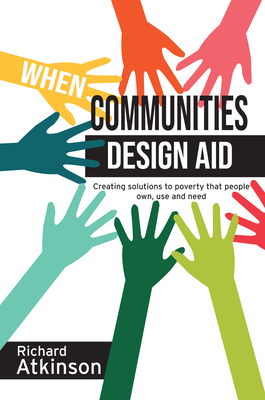When Communities Design Aid: Creating Solutions to Poverty That People Own, Use and Need

When Communities Design Aid: Creating Solutions to Poverty That People Own, Use and Need
Aid initiatives go wrong for many reasons, but a common and surprising one is that poor people often don't want the kind of aid that is offered. This book explores why this happens and how it can be prevented. Richard Atkinson outlines important mistakes that the designers of development programmes often make, illustrating these with examples from the field and analysing what it is that outsiders get wrong when designing for poor communities.
What does aid look like when it is designed from the perspective of the poorest? The second section of the book explores this question, introducing a number of design principles, including how to create solutions that make use of communal ties, work around discrimination, appreciate the importance of aesthetics and can be learned through experience. Atkinson concludes that we need to accelerate radically the transfer of knowledge, skills and power from outside 'experts' to communities on the ground. Using case studies and theory from past development literature, he traces the challenges involved, but also the clear potential to make development truly community led. His concluding 12 proposals for 'Participative Development Goals' will stimulate debate and action amongst development practitioners, researchers and the organisations interested in developing solutions for the world's poorest communities.
PRP: 223.84 Lei
Acesta este Pretul Recomandat de Producator. Pretul de vanzare al produsului este afisat mai jos.
201.46Lei
201.46Lei
223.84 LeiLivrare in 2-4 saptamani
Descrierea produsului
Aid initiatives go wrong for many reasons, but a common and surprising one is that poor people often don't want the kind of aid that is offered. This book explores why this happens and how it can be prevented. Richard Atkinson outlines important mistakes that the designers of development programmes often make, illustrating these with examples from the field and analysing what it is that outsiders get wrong when designing for poor communities.
What does aid look like when it is designed from the perspective of the poorest? The second section of the book explores this question, introducing a number of design principles, including how to create solutions that make use of communal ties, work around discrimination, appreciate the importance of aesthetics and can be learned through experience. Atkinson concludes that we need to accelerate radically the transfer of knowledge, skills and power from outside 'experts' to communities on the ground. Using case studies and theory from past development literature, he traces the challenges involved, but also the clear potential to make development truly community led. His concluding 12 proposals for 'Participative Development Goals' will stimulate debate and action amongst development practitioners, researchers and the organisations interested in developing solutions for the world's poorest communities.
Detaliile produsului








